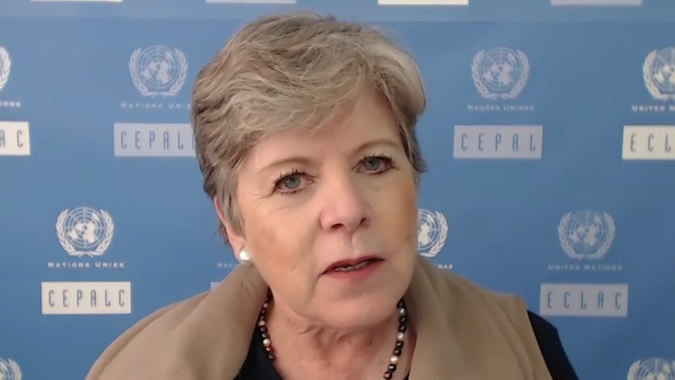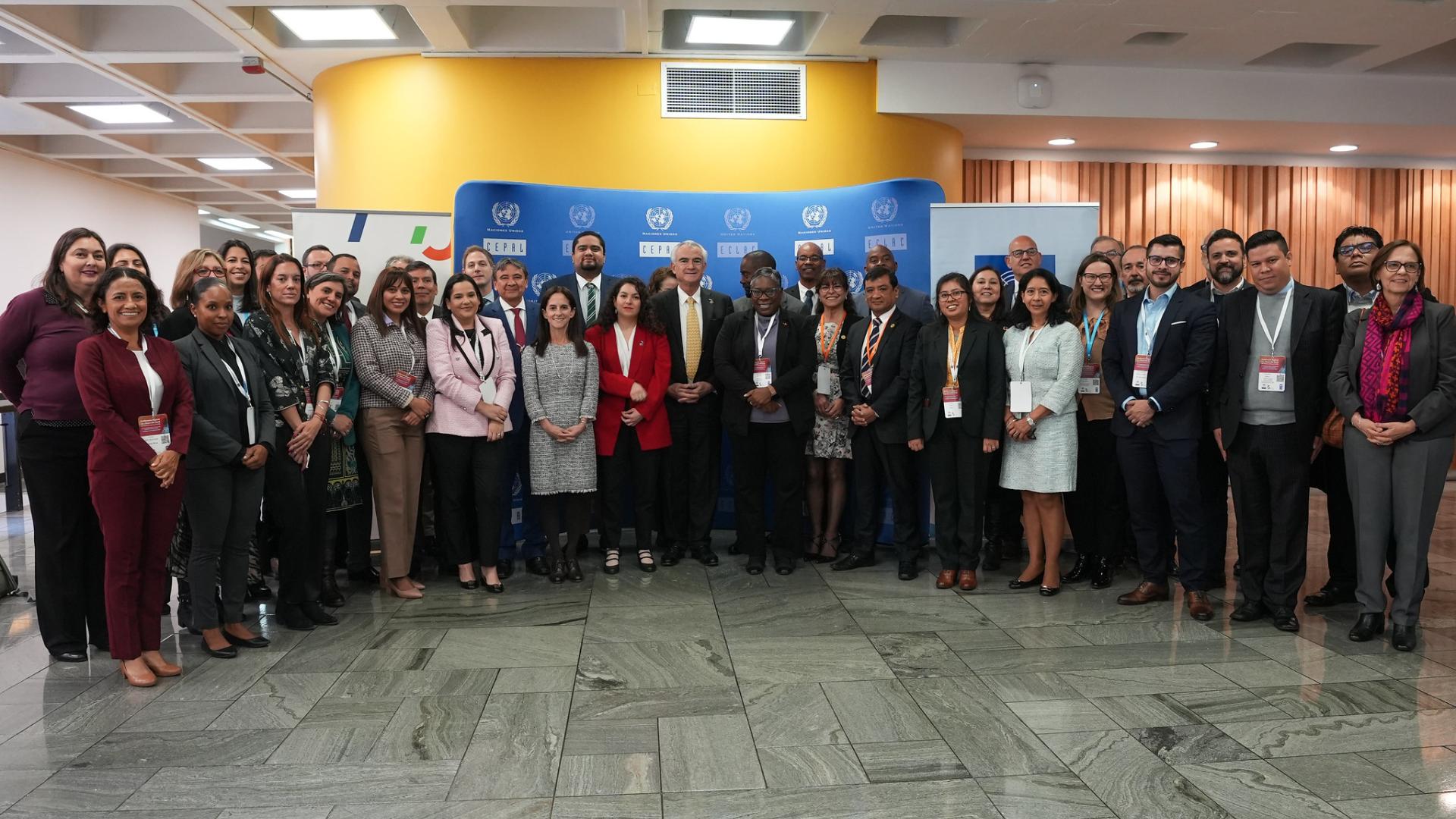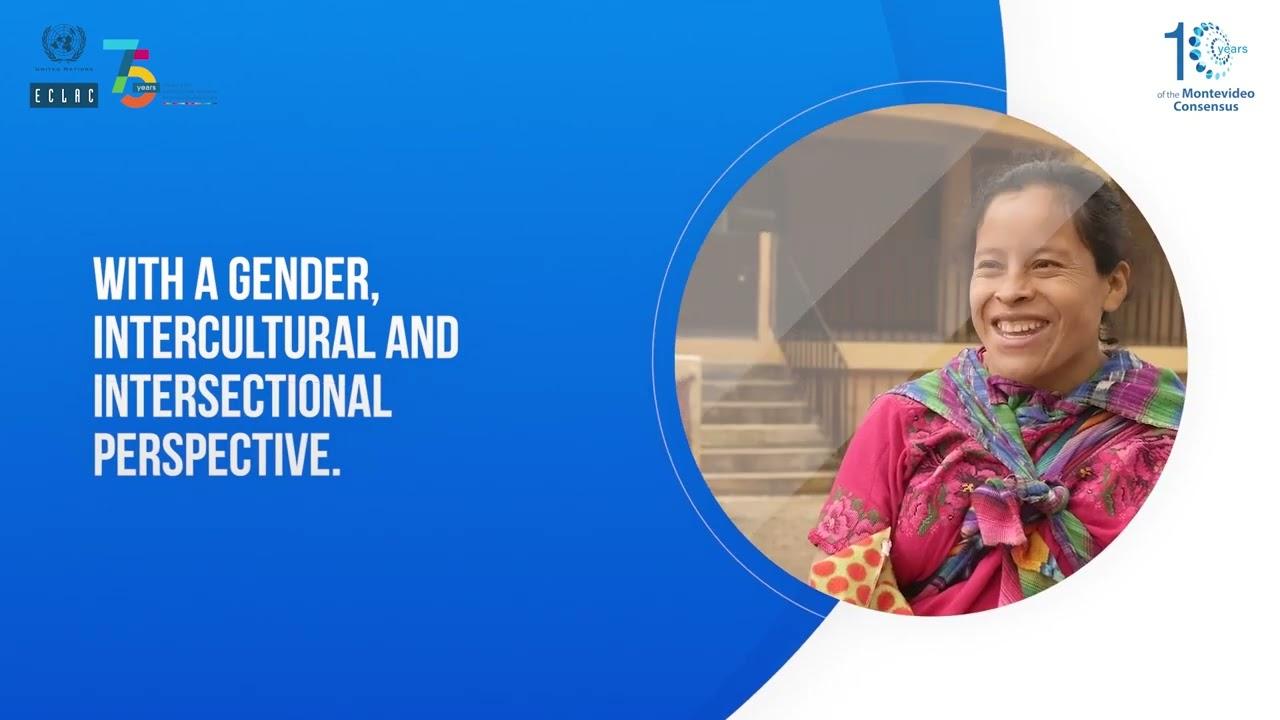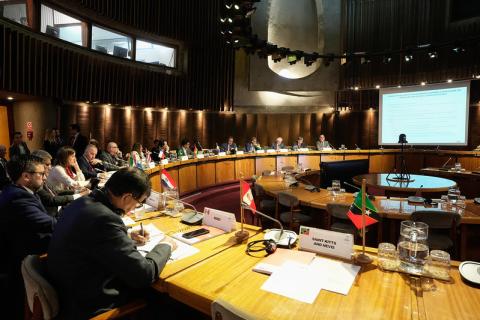Briefing note
The United States and Latin America and the Caribbean need to establish a renewed dialogue to confront the challenges posed by the current crisis unleashed by the coronavirus disease (COVID-19) and to thereby achieve a recovery with equality and environmental sustainability, Alicia Bárcena, ECLAC’s Executive Secretary, said today during a high-level virtual seminar with prominent specialists from the North American country.
The event entitled “The United States and Latin America and the Caribbean: a dialogue towards recovery with sustainability and equality post COVID-19" was moderated by the Director of ECLAC’s Office in Washington, D.C., Inés Bustillo, and included the participation of Martha Bárcena, Ambassador of Mexico to the United States; Andrew Selee, President of the Migration Policy Institute; Cynthia Arnson, Director of the Wilson Center’s Latin American Program; and Kevin Gallagher, Professor of Global Development Policy and Director of the Global Development Policy Center at Boston University.
In her presentation, Alicia Bárcena indicated that the dialogue between both parties (the United States and Latin America and the Caribbean) should be based on key elements such as access to external financing, broader access to the U.S. market in the context of the new global economic geography that is growing out of the crisis, and incentives for locating suppliers in closer sectors (nearshoring) and diversifying the supply sources coming from Latin America and the Caribbean.
With regard to external financing, it is crucial to ensure that new Special Drawing Rights (SDRs) be issued and relocated to middle-income countries and other special regional vehicles; to increase the capitalization of regional development banks, such as the Inter-American Development Bank (IDB) and other, similar financial institutions; a standstill during systemic crises, such as the current one, of the evaluations of countries’ sovereign debt that are carried out by credit rating agencies; and to improve credit evaluation methodologies with greater transparency, timing, flexibility and accountability, the Executive Secretary of the Economic Commission for Latin America and the Caribbean (ECLAC) explained.
“In a global economy that is expected to be more uncertain and more regionalized, what type of dialogue between the United States and Latin America and the Caribbean could take place to support the economic recovery? Uncertainty persists as to what kind of recovery will take place and what economic policy measures are required to move from addressing the emergency to supporting the recovery,” Bárcena warned.
The senior United Nations official indicated that ECLAC has already made five proposals for the short term, which include the provision of an emergency basic income to the population living in poverty for six months, along with an anti-hunger grant; the extension of repayment terms and grace periods for lending to Small and Medium-Sized Enterprises (SMEs); expansionary fiscal and monetary policies to support a longer period of spending (which will be structural) with non-conventional instruments; political and fiscal compacts oriented towards universal, progressive and redistributive social protection; and access to financing under favorable conditions for middle-income countries.
“More than a decade of progress will be lost: by the end of 2020, the region’s GDP per capita will have lost more than 10 years of growth, and poverty levels will have seen a 14 year setback,” Bárcena recalled. “This will be the worst crisis in a century for Latin America and the Caribbean: GDP will contract -9.1%, regional unemployment will reach 13.5%, 231 million more people will end up in situations of poverty and 98 million in extreme poverty.”
Alicia Bárcena also noted that credit quality has deteriorated and trade between the United States and Latin America and the Caribbean has declined significantly: the United States’ imports from the region fell 20.5% in the first half of 2020 (versus the same period of 2019). Sectors such as vehicles, spare parts and engines, tourism, leisure and hospitality have been the most affected, with an even strongest impact on Caribbean economies.
During the webinar, the expert speakers discussed the impact of the crisis on migration and the importance of integration and multilateralism. In addition, they highlighted initiatives led by ECLAC, such as the proposal for exchanging the Caribbean’s debt for climate change adaptation and the Comprehensive Development Plan for Mexico, Guatemala, Honduras and El Salvador, which can serve as relevant instruments for the post COVID-19 recovery.
Ambassador Martha Bárcena underlined the paradox affecting the Hispanic community in the United States, which is experiencing the biggest job losses during the pandemic while simultaneously participating in a very substantive way in activities that are essential.
Meanwhile, in a similar vein, Andrew Selee stressed the change in trend regarding the employment of immigrants, who previously had lower unemployment rates than local citizens (non-immigrants) – a phenomenon that was turned on its head in the pandemic.
Cynthia Arnson, in turn, presented a detailed analysis of future possibilities regarding U.S. policy towards Latin America and the Caribbean after the elections that the North American country will hold this year, while Kevin Gallagher focused on the post-pandemic economic scenario in the United States, where contraction and austerity may be glimpsed, and their possible effects on the rest of the hemisphere.
“Regionalization is a process that is already happening and we must analyze how we can integrate further. We must think fully about what strengths we have in our region and how we can organize ourselves in sectors such as pharmaceuticals and medical equipment, and even in the production of vaccines for the virus,” Alicia Bárcena, ECLAC’s Executive Secretary, concluded.



